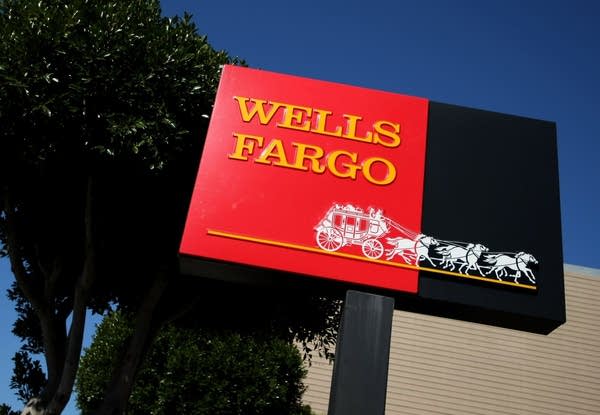Analysts say local financial firms will survive turmoil
Go Deeper.
Create an account or log in to save stories.
Like this?
Thanks for liking this story! We have added it to a list of your favorite stories.

Last Thursday and Friday, bank and other financial services stocks got a big bump during the biggest two-day market rally since 1987. The rally started with reports of a federally-financed bailout of firms saddled with hundreds of billions of dollars in bad mortgage loans.
But over the weekend, Morningstar analyst Jaime Peters said people started to think about how fuzzy the details of the plan are at this point. "There are so many questions surrounding what's going to be bought," Peters said. "Who's eligible to buy it? What price are they going to be able to buy it at? What does that mean for banks that are going to participate? Aren't going to participate? There are so many questions surrounding what this ultimately could be, that we're starting to see a little bit of nerves."
Nerves send stock prices down.
JPMorgan Chase & Co. advised clients to sell regional banks and lock in recent profits. The company said the government's temporary guarantee on money market funds creates new competition for banks, and the bailout could lead to higher taxes, making it tougher for consumers to pay back loans.
Turn Up Your Support
MPR News helps you turn down the noise and build shared understanding. Turn up your support for this public resource and keep trusted journalism accessible to all.
Several analysts downgraded ratings on TCF, US Bank and Wells Fargo. Some did so while they said the banks are basically sound and should readily weather the current storm battering the financial sector.
Sandler O'Neill & Partners warned the government might buy bad debt at deep-deep discounts, resulting in further losses for banks selling the assets. The firm said the banking industry still faces failures and lower profitability.
Certainly, with unemployment rising and consumers feeling increasingly squeezed, analyst Thane Bublitz with Thrivent Asset Management said more loan woes could be awaiting banks.
"There's growing concern that the consumer may run into more and more problems.," Bublitz said.
If things do get worse for area banks, Bublitz said he expects TCF would get hit first.
"The concern there is their exposure to, as they have said it, Joe Lunch Bucket," Bublitz said. "There's more of a blue-collar focus on their bank, which could be a little bit more of an issue if the consumer starts to have problems."
TCF has had problems with home equity loans, especially in tough markets like Detroit.
But Stifel Nicolaus banking analyst Ben Crabtree said TCF's problems with those loans seem to have peaked. And, Crabtree said TCF, like most other banks rooted in the Midwest, is sound.
"Unless you have the view that we're going to slip into something like a depression, the banks in the Upper Midwest are in pretty good shape," Crabtree said. "They typically don't have subprime loans in their portfolio [or] on their balance sheet. They're making money."
Just not as much as the banks or Wall Street would like, though.
Crabtree thinks the federal bail-out of troubled mortgage lenders will likely avoid any Depression-like financial meltdown. But Crabtree said a bailout isn't going to rev up the economy the way banks would like.
Crabtree believes it certainly won't fix the housing industry, which is so important to lenders.
"It's really not going to cause a rebound in housing values," Crabtree said. "It's not going to create new equity in what people have been calling the housing ATM, the ability to tap your equity to buy cars and things like that."
But the region's big three banks appear strong enough to get through the current industry turmoil.
Morningstar's Peters said the long-term prospects for Wells Fargo, TCF and US Bank are good.
"Those three are really in the upper echelons of banks as far as financial health is going," Peters. "And as a result they are likely to be survivors of this mess that we're going through right now and probably will emerge stronger on the other side than when they entered into it."
Indeed the banks may well survive the latest industry crisis. US Bank and Wells Fargo are actually often mentioned as likely buyers of weaker banks. But along the way, there will no doubt be concerns about how the banks' profits --and stock prices -- may be harmed by the sins of their less-prudent peers.
Dear reader,
Political debates with family or friends can get heated. But what if there was a way to handle them better?
You can learn how to have civil political conversations with our new e-book!
Download our free e-book, Talking Sense: Have Hard Political Conversations, Better, and learn how to talk without the tension.





